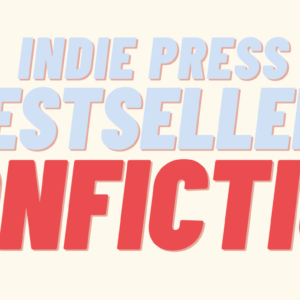
How Did Elizabeth Wurtzel Survive Us?
Lynn Steger Strong: "We ask them to flay themselves open and we celebrate it."
I was going to write about US imperialism but then Elizabeth Wurtzel died. I was off Twitter Tuesday. I was having coffee with a friend and then working and a couple of hours later, popping back on my phone, I suddenly saw that she had died.
I was 17 when I read Prozac Nation. I was living in Boston, cold all of the time after years in Florida. I sat in this Cambridge Starbucks I used to go to all the time with the mocha Frappuccino I always ordered from the sweet boy behind the counter who I always worried I made nervous because I couldn’t stop my hands from shaking, and I wore the same stained sweatshirt and sweatpants I always wore then and I read and I sobbed. It was so frank and so alive and so like nothing that I’d ever read before it. It was messy and it was self-centered and it was mad.
I was texting with a friend on Tuesday about Wurtzel’s death, and she said it feels so generational, and I don’t think she’s wrong. It speaks to what Wurtzel did, what she made space for, that the women who came after us felt like it was okay to make fun of her in the early 2000s—her naked book cover, her solipsistic messy essays in big splashy magazines—when the fact that it was okay for them to have opinions so loudly and unthinkingly was, in part, because of her.
And here’s the thing about messy opinionated women: we like them now—we claim, at least, to have more patience for them—but nobody liked messy women then. None of what I was when I first read Elizabeth Wurtzel had ever felt allowed.
I’m normally wary of writing as catharsis. Writing is a craft; it has to have a form; I believe books and essays should acknowledge and respect this. In classes I teach I talk a lot about scaffolding and spines and structure; I talk about the necessity for parts to each work to somehow serve the whole.
Reading her felt like permission to feel other things besides sad and afraid. It helped me feel smart, for seeing that the world was fucked up and not just going along with it.
But also, books are intimate and precious. Books are secret-sharing. Books are two drinks in, at a bar close to your house, a little sweaty and a little dark, and someone you know well but also don’t quite trust suddenly lowers her voice and maybe puts her hand up on your wrist, and tells you everything and you forget a minute how to breathe.
I had roughly one friend the year that I read Prozac Nation. I had what my dorm-mates called hermitosis, which meant I never left my room except to pee. I don’t need to lay all this out for you and the specifics don’t quite matter. What matters is how scared I was and how reading her felt like permission to feel other things besides sad and afraid. It helped me feel mad, for instance, for all the ways no one was helping. It helped me feel smart, for seeing that the world was fucked up and not just going along with it. It made me feel close to someone, in the way books are supposed to, trusted enough for the writer to be messy with me, respected enough to hear things how they were and not just as she thought I might need them to be.
In a class I taught this summer a young boy raised his hand and asked if I thought women talked about their feelings in their fiction more than men do. It just seems to me, he said, that women are more interested in internality. I gave him a list of books by men about men’s feelings. I gave him a list of books by women filled with plot. That class we read Samantha Hunt (a plot genius), Yiyun Li, and Deborah Eisenberg, among others. Men write plenty about their feelings, I told him. You’re just less used to women’s feelings because the language that they’re being shaped in feels newer to you, because the way their internality (and externality) is structured is not the same as what you’ve read before.
I’m working on a few things right now about books that have come out or are coming out soon and I’ve been thinking a lot about the trajectory of books and language by both men and women. I’ve been thinking about the way that all the language, not just its source but its shape and weight, our syntax; the words we use to assign value to the things we make; the choices we make and their consequences; how it was mostly built by men.
There were women who came before Wurtzel, of course; plenty of them. Some of them were better writers, better storytellers, but she opened up to a certain sect of us, a generation maybe, at a time when many of the women working alongside her were working in such tight circles, so well-behaved and thoughtful, so structurally adept and within the confines of what had been predetermined to be right and good. She was wrong and bad and unapologetic instead.
What is it we imagine they’re surviving? I thought, re-reading some of her essays. Us, I guess.
Typing this, I want to take it back and say it better. I want not to make too big a case for her when there were plenty of others, long before her, who also fought this fight that had seemed so insurmountable for so long, but I also want to say that she was on the edge of something and no one ever quite forgave her for it. She was louder than so many of the others, so unwilling to couch any of her feelings or her experiences in any other form. She didn’t always shape it perfectly, and she, like everyone just like her, had blind spots; but, when I think about a lot of the work by women writers that came out at the same time, a lot of it was performing something—the same structures, the same values, the same systems—we’d seen performed before by men. They did it smartly, sharply, but also, I can’t remember where I read most of those books.
As soon as I heard Wurtzel died I thought of Amy Winehouse, willing to lay herself bare so freely and (seemingly) not fully aware of the consequences, so chock full of talent, so intoxicatingly tight on every nerve. We ask them to flay themselves open and we celebrate it; we lap it up, until we tire of them, or they get old, until the flaying leads to something that makes us uncomfortable and then we get angry or annoyed when they don’t quickly and neatly stitch themselves back up.
It is no wonder they die early. Wurtzel said this often, how shocked she was, to still be around. She got almost twice as much life as Winehouse, and it was cancer, not drugs, that got her. In a lot of ways, for women like them, 52 feels old. But, of course, it’s not old; of course, she still would have had so much more she could have shown us all.
What is it we imagine they’re surviving? I thought, re-reading some of her essays, thinking of Winehouse again. Us, I guess. It’s shocking that they were able to survive what we did to them—gawking, reading, gobsmacked—as they dared to want and feel and be so openly in front of us. As they performed over and over exactly what we claimed, at first, to want.
Wurtzel made more space for the rest of us to write complicatedly and to get messy, to not apologize for it later, to not continually take it back. I am so grateful to her, for how openly and unapologetically she was. I’m so very sad she’s gone.
Lynn Steger Strong
Lynn Steger Strong is the author of two novels, Hold Still, and Want. Her nonfiction has appeared in The Paris Review, Guernica, Catapult, LARB, and elsewhere. She teaches both fiction and nonfiction writing at Columbia University, Fairfield University, and the Pratt Institute.



















